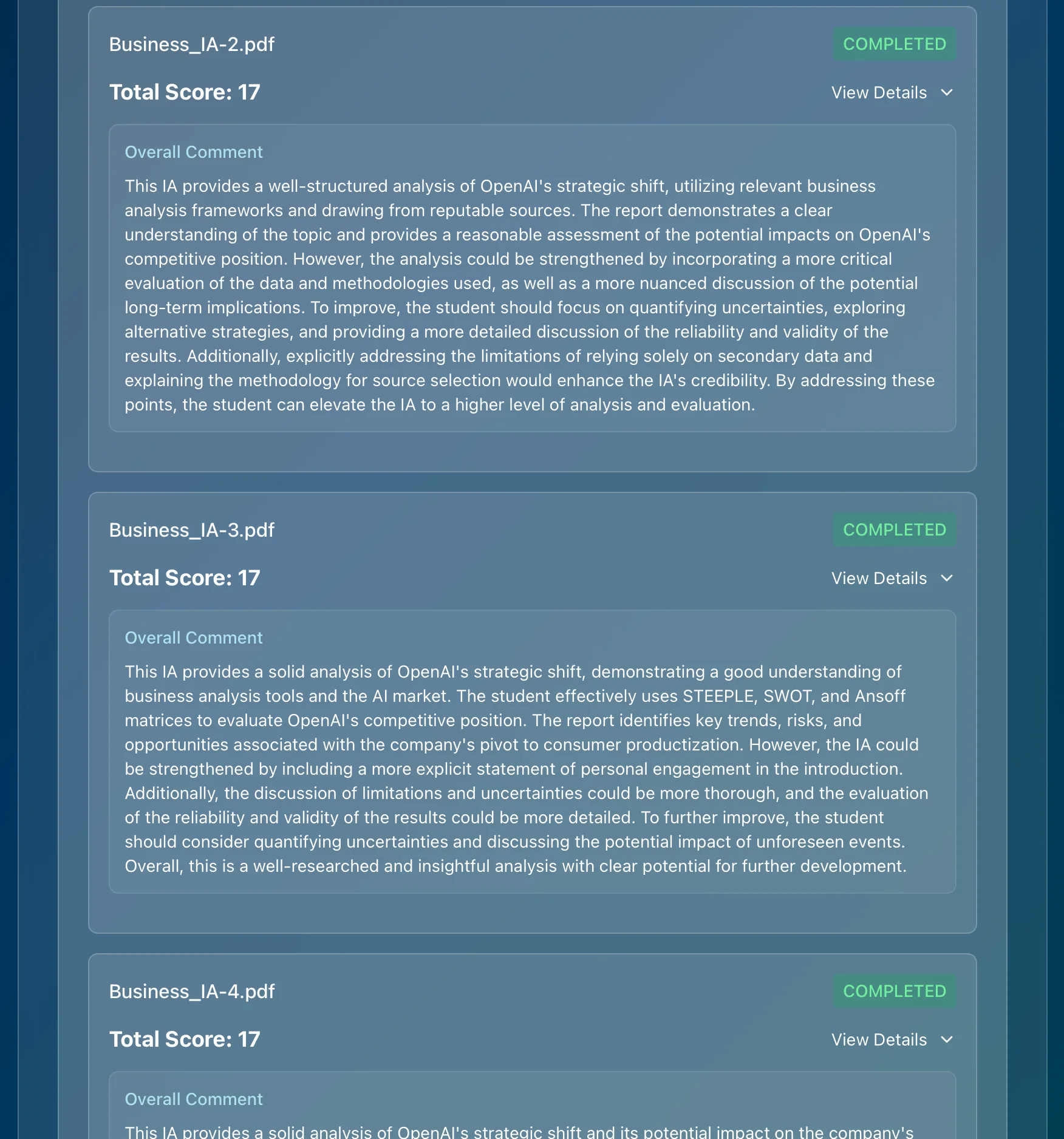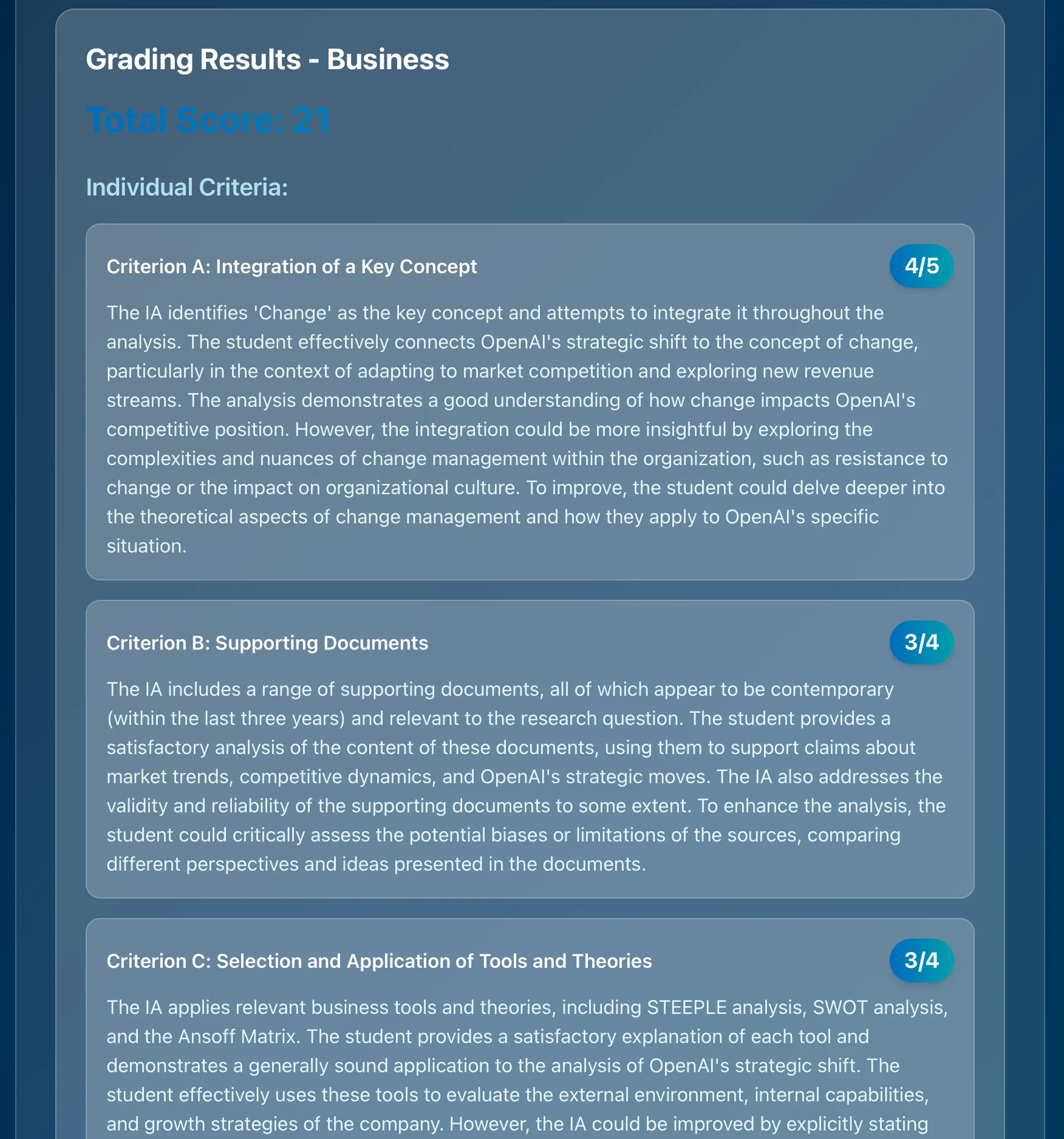University Application Essays for IB Students
Navigating the university application process as an International Baccalaureate (IB) student can feel overwhelming. The personal essay, a critical component of your application, offers a unique opportunity to showcase your personality, experiences, and aspirations beyond your IB scores. This guide provides comprehensive strategies and actionable advice to help you craft compelling university application essays that stand out. We'll cover everything from brainstorming ideas to refining your final draft, ensuring you present your best self to admissions committees.
Introduction (Answer the Query Immediately)
The university application essay is your chance to tell your story, demonstrating who you are beyond your academic achievements. As an IB student, you've already developed critical thinking, research, and communication skills. Now, you need to leverage those skills to craft an essay that resonates with admissions officers. This guide will walk you through the process, offering practical tips and strategies to help you write a compelling and authentic essay that highlights your unique strengths and experiences. We'll explore common pitfalls, advanced techniques, and even how technology can assist you in refining your work.
Struggling with IB Assessments?
Get instant, detailed feedback on your work with AI that understands IB criteria.

Understanding the Importance of the University Application Essay
The university application essay is more than just a writing assignment; it's a crucial element in the admissions process. While your IB scores and grades provide a quantitative measure of your academic abilities, the essay offers a qualitative glimpse into your character, values, and potential.
- Demonstrates Your Personality: The essay allows you to showcase your unique personality, interests, and passions.
- Highlights Your Experiences: You can share meaningful experiences that have shaped you and demonstrate your growth and resilience.
- Shows Your Writing Skills: The essay is a direct reflection of your writing abilities, critical thinking, and communication skills.
- Explains Your "Why": It provides an opportunity to articulate your reasons for choosing a particular university and program.
Brainstorming Ideas: Finding Your Story
The first step in writing a compelling university application essay is brainstorming ideas. This involves exploring your experiences, interests, and values to identify a story that is both meaningful and engaging.
Reflecting on Your IB Experience
Your IB experience is a rich source of potential essay topics. Consider the following:
- CAS Projects: Reflect on your Creativity, Activity, Service (CAS) projects. What did you learn? What challenges did you overcome?
- Extended Essay: While you shouldn't rewrite your Extended Essay, consider how the research process and your findings impacted you.
- TOK (Theory of Knowledge): Did any particular TOK concepts or discussions spark a profound realization or change your perspective?
- Subject-Specific Experiences: Think about moments in your IB subjects that ignited your curiosity or challenged your assumptions.
Exploring Your Personal Experiences
Beyond your IB experience, consider your personal life, hobbies, and interests:
- Significant Challenges: Have you overcome a significant challenge or obstacle? How did you grow from the experience?
- Meaningful Relationships: Reflect on relationships that have shaped you, such as family members, friends, or mentors.
- Passions and Hobbies: What are you passionate about? How do you pursue your hobbies and interests?
- Travel Experiences: Have you traveled to different countries or cultures? What did you learn from these experiences?
Using Brainstorming Techniques
Try these brainstorming techniques to generate ideas:
- Freewriting: Write continuously for 10-15 minutes without stopping to edit or censor yourself.
- Mind Mapping: Create a visual representation of your ideas, connecting related concepts and themes.
- Journaling: Regularly write in a journal to explore your thoughts and feelings.
- Talking to Others: Discuss your experiences and interests with friends, family, or mentors.
Example:
Let's say you participated in a CAS project where you tutored underprivileged children in math. You could write about the challenges you faced in adapting your teaching methods to different learning styles, the satisfaction you felt when your students made progress, and the impact the experience had on your understanding of social inequality.
Structuring Your Essay: Creating a Compelling Narrative
Once you have a topic, you need to structure your essay effectively to create a compelling narrative. A well-structured essay has a clear beginning, middle, and end, and it flows logically from one idea to the next.
The Introduction: Hooking the Reader
The introduction is your first opportunity to grab the reader's attention. Start with a compelling hook, such as:
- An Anecdote: A brief, engaging story that relates to your topic.
- A Thought-Provoking Question: A question that challenges the reader's assumptions.
- A Bold Statement: A statement that captures the essence of your essay.
After your hook, provide context and introduce your main idea or thesis statement.
The Body: Developing Your Ideas
The body of your essay should develop your main idea with specific examples, evidence, and analysis. Each paragraph should focus on a single point and support it with relevant details.
- Use the STAR Method: When describing experiences, use the STAR method (Situation, Task, Action, Result) to provide a clear and concise account of what happened.
- Show, Don't Tell: Use vivid language and sensory details to bring your story to life. Instead of saying "I was nervous," describe the physical sensations you experienced.
- Analyze Your Experiences: Don't just describe what happened; analyze why it was significant and what you learned from it.
The Conclusion: Leaving a Lasting Impression
The conclusion should summarize your main points and leave the reader with a lasting impression.
- Restate Your Thesis: Briefly restate your main idea in a new and insightful way.
- Reflect on Your Growth: Reflect on how you have grown or changed as a result of your experiences.
- Connect to Your Future Goals: Connect your experiences to your future goals and aspirations.
- End with a Powerful Statement: Leave the reader with a final thought or message that resonates with them.
Writing Style: Crafting a Clear and Engaging Voice
Your writing style is just as important as the content of your essay. Use clear, concise language and avoid jargon or overly complex sentences.
- Use Active Voice: Active voice makes your writing more direct and engaging.
- Vary Your Sentence Structure: Use a variety of sentence lengths and structures to keep your reader interested.
- Avoid Clichés: Use original language and avoid overused phrases.
- Proofread Carefully: Proofread your essay for grammar, spelling, and punctuation errors.
Pro Tip: Get AI-Powered Grading
Stop second-guessing your grades. Get instant feedback aligned with official IB rubrics.

Common Challenges/Mistakes Section
Many IB students face similar challenges when writing their university application essays. Here are some common mistakes to avoid:
- Generic Essays: Writing an essay that could apply to anyone. Make sure your essay is specific to your experiences and personality.
- Lack of Focus: Trying to cover too many topics in one essay. Focus on one central theme and develop it thoroughly.
- Overly Ambitious Language: Using overly complex language or trying to sound smarter than you are. Write in your own voice and be authentic.
- Negative Tone: Focusing on negative experiences without demonstrating growth or resilience.
- Ignoring the Prompt: Failing to address the specific prompt or question asked by the university.
- Procrastination: Waiting until the last minute to write your essay. Start early and give yourself plenty of time to revise and edit.
Advanced Tips/Strategies Section
For students aiming to write truly exceptional essays, consider these advanced strategies:
- Show Vulnerability: Don't be afraid to share your weaknesses or vulnerabilities. Authenticity is key to connecting with the reader.
- Use Metaphors and Similes: Use figurative language to create vivid imagery and enhance your writing.
- Find a Unique Angle: Look for a fresh perspective or a unique way to approach your topic.
- Get Feedback from Multiple Sources: Ask teachers, counselors, and peers to read your essay and provide feedback.
- Revise, Revise, Revise: Don't be afraid to rewrite your essay multiple times. The best essays are often the result of extensive revision.
- Read Successful Essays: Analyze successful essays from previous years to get inspiration and learn from their techniques. (Note: Do NOT plagiarize!)
Technology and Modern Assessment Section
Technology is transforming the way we approach education and assessment. AI-powered tools are becoming increasingly valuable in helping students refine their writing and improve their understanding of assessment criteria.
AI grading assistants, like Marksy, can provide instant, accurate, and detailed feedback on student essays based on official IB rubrics. This allows students to identify areas for improvement and refine their writing accordingly. Marksy offers rubric-aligned scoring, detailed criterion-by-criterion feedback, and suggestions for improvement, helping students understand exactly how to improve their work.
For teachers, Marksy streamlines the grading process, saving valuable time and ensuring consistent and fair assessment. By automating the tedious aspects of grading, teachers can focus on providing personalized feedback and support to their students. The use of AI in assessment ensures that all students are evaluated according to the same standards, promoting fairness and equity.
Marksy uses official IB criteria to ensure accuracy and fairness in its assessments. This helps students understand exactly what is expected of them and how to meet those expectations. The detailed feedback provided by Marksy can also help students develop their critical thinking and writing skills, which are essential for success in the IB program and beyond.
Conclusion with Clear Next Steps
Writing a compelling university application essay is a challenging but rewarding process. By following the tips and strategies outlined in this guide, you can craft an essay that showcases your unique personality, experiences, and aspirations. Remember to brainstorm ideas, structure your essay effectively, write in a clear and engaging voice, and avoid common mistakes. Embrace technology to refine your work and leverage AI-powered tools like Marksy to gain valuable feedback and improve your understanding of assessment criteria.
Next Steps:
- Start Brainstorming: Dedicate time to reflect on your experiences and identify potential essay topics.
- Create an Outline: Develop a clear structure for your essay, including an introduction, body paragraphs, and a conclusion.
- Write a First Draft: Don't worry about perfection at this stage. Just get your ideas down on paper.
- Revise and Edit: Refine your writing, improve your structure, and correct any errors.
- Get Feedback: Ask teachers, counselors, and peers to read your essay and provide feedback.
- Practice, Practice, Practice: The more you write, the better you'll become.
Ready to take your IB university application essay to the next level? Try Marksy for free today and experience the power of AI-driven feedback to improve your writing and boost your chances of acceptance! Sign up for a free trial and see how Marksy can help you ace your IB assessments and achieve your academic goals.